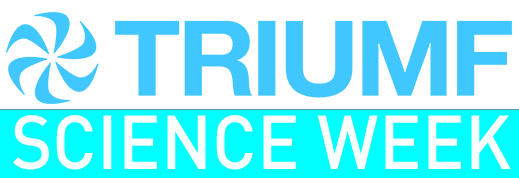Dr
Pierre Bricault
21/08/2019, 08:45
Dr
Valery Radchenko
(TRIUMF)
21/08/2019, 09:45
Prof.
Dan Melconian
21/08/2019, 10:35
Prof.
Gwen Grinyer
(University of Regina)
21/08/2019, 10:55
Prof.
Rob Kiefl
(TRIUMF and UBC)
21/08/2019, 11:15
Prof.
Alison Laird
(York University)
21/08/2019, 11:35
Dr
Petr Navratil
(TRIUMF)
21/08/2019, 12:05
Prof.
Rituparna Kanungo
(Saint Mary's University)
21/08/2019, 13:45
Dr
Adam Garnsworthy
(TRIUMF)
21/08/2019, 14:10
Dr
Barry Davids
(TRIUMF)
21/08/2019, 14:35
Dr
Zaher Salman
21/08/2019, 14:55
Dr
Iris Dillmann
(TRIUMF)
21/08/2019, 15:45
Dr
Anna Kwiatkowski
(TRIUMF)
21/08/2019, 16:10
Prof.
Gerald Gwinner
(University of Manitoba)
21/08/2019, 16:35
Kilian Dietrich
(TRIUMF)
22/08/2019, 13:30
Prof.
Dennis Muecher
22/08/2019, 16:15
Prof.
Graeme Luke
22/08/2019, 16:30
Dr
Andrea Capra
22/08/2019, 16:45
Dr
Wojciech Fedorko
(TRIUMF)
23/08/2019, 08:30
Data Science and Quantum Computing Workshop
We will develop a deep learning solution for event classification in a partice physics experiment
Dr
Christopher Granade
(Microsoft)
23/08/2019, 11:00
In this workshop, participants will learn to use the Quantum Development Kit and the Q# programming language to develop quantum applications and test them using simulators. The workshop consists of a short lecture and a series of hands-on exercises, covering a wide variety of tasks and concepts. No prior software installation needed to participate, all materials are available online.
Dr
Hossein Sadeghi
(D-Wave)
23/08/2019, 14:00
Generative models are among the most promising approaches toward understanding unlabelled data. They have a wide range of applications in structured prediction, molecular & material design, image analysis, speech synthesis, and computer vision. They pair with supervised learning models to help perform ML tasks when labelling data is expensive or labels are only available in a different domain....
Dr
Giacomo Torlai
(Flatiron Institute)
23/08/2019, 14:30
The recent advances in qubit manufacturing and coherent control of synthetic quantum matter are leading to a new generation of intermediate scale quantum hardware, with promising progress towards scalable simulation of quantum matter and materials. In order to enhance the capabilities of this class of quantum devices, some of the more arduous experimental tasks can be off-loaded to classical...
Dr
Pooya Ronagh
(1QBit, IQC, UW)
23/08/2019, 15:00
We introduce quantum algorithms for solving finite-horizon and infinite-horizon dynamic programming problems. We visit the query complexity lower bounds for classical randomized algorithms for the same tasks and consequently demonstrate a polynomial separation between the query complexity of our quantum algorithms and best-case query complexity of classical randomized algorithms. Up to...
Dr
Wojciech Fedorko
(TRIUMF)
23/08/2019, 16:00
A foreword on Machine Learning projects started at TRIUMF
Mr
Abhishek Kajal
(TRIUMF/University of Manitoba)
23/08/2019, 16:03
Data Science and Quantum Computing Workshop
A Variational AutoEncoder (VAE) is a generative method used to approximate the probability distribution of processes in very high dimensional spaces. We apply VAEs for generative modelling of Water Cherenkov detectors which are used to perform precision measurements on neutrinos. In this talk, I will discuss the steps and challenges in applying VAEs to simulated neutrino events in the proposed...
Mr
Jeffrey English
(Fujitsu), Mr
Tadayoshi Ozaki
(Fujitsu)
23/08/2019, 17:05
Data Science and Quantum Computing Workshop
The Fujitsu Digital Annealer is a new technology that is used to solve large-scale combinatorial optimization problems instantly. The Digital Annealer uses a digital circuit design and can solve problems which are intractable for classical computers. In this workshop, we introduce how the Digital Annealer works for solving combinatorial optimization problems with use cases drawn from...

